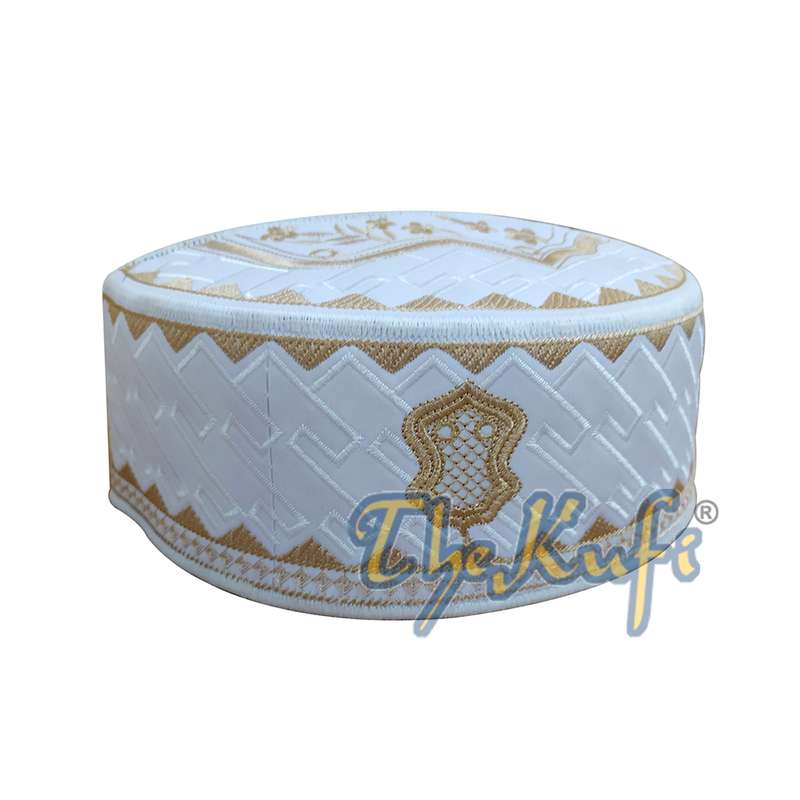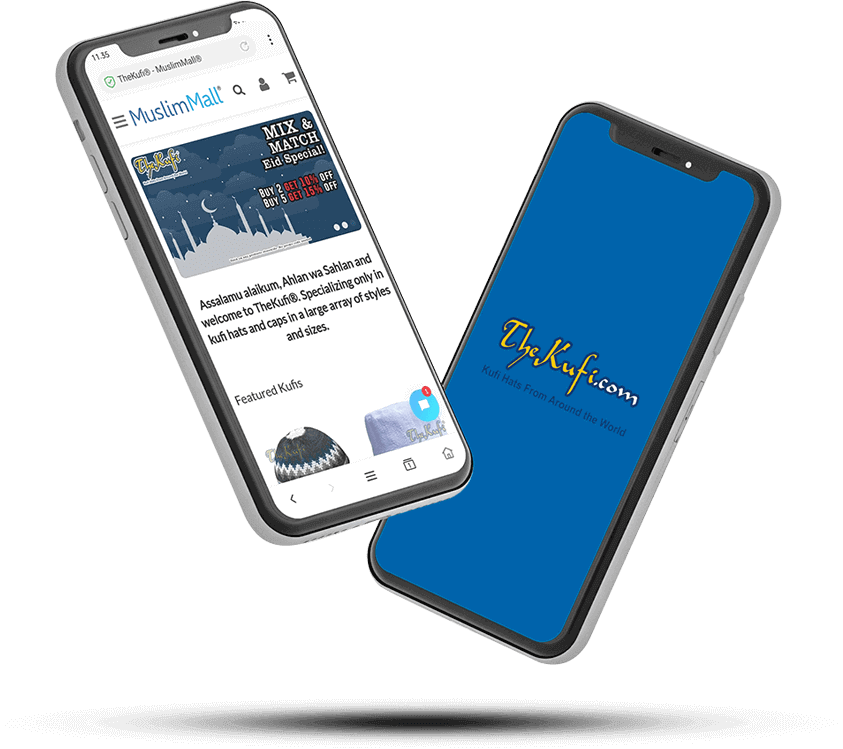What is a Kufi?

In this article we will explain the following about the “Kufi”
A Kufi
What is a Kufi: The word kufi has generally become known in the West as anything that covers the head from ear to ear without having a brim or visor. It is said to be a West African version of the Arabic word kufiyya or kafiyya. Most commonly, a kufi hat or cap is a head covering worn by Muslims worldwide, but it is not limited to that. It is a brimless head covering that can be made of any type of material including, felt, cloth, straw, wool, or crocheted thread or yarn, just to name a few of the materials used.
Different Names for the Kufi
In the Arabic-speaking world a kufi is known as a taqiya (plural; taqiyaat) and in Turkey, they are called a takke. Indonesians and Malay-speaking countries have various names for kufis such as; kopiah, peci, or topi. Topi is also what they are commonly called in Pakistan and India. In English, they are often simply referred to as a prayer cap. There are many other names for Kufis in other countries as well. We have just mentioned a few here.
The Difference Between Kufi Caps and Kufi Hats
To clarify, we use the phrase Kufi Cap to describe kufis that are form-fitting to the dome of the skull, which is also called skullcaps or skullies in English. The term Kufi Hat covers a wider range of styles that don’t normally conform to the dome or arch of the skull. A Kufi Hat may also refer to a fez, tarbush, or any brimless hat, tall or short, that may not fit snug to the dome of the skull. Some people just prefer a hand crocheted or knitted caps that fits in the pocket while others choose formal kufi hats for special occasions or events.
Different Types of Kufis
There are many types of kufis in every Muslim country. Some tall and rigid, some thin and pliable. Kufi styles also change with fashion trends and different generations. The Turkish people use to prefer the tall red fez but now they mostly wear thin kufi caps or rigid kufi hats with turbans wrapped on them. Indonesians and Malays, Bruneians have versions of the Songkok (a black velvet foldable oval kufi hat) which is also considered a part of their National garb. Each country is different. Naturally the larger Muslim majority countries, such as Indonesia and Pakistan have the largest variety of kufi styles.
Who Wears kufis
In Islam it is recommended and one of the sunnahs (traditions of the Prophet of Islam, Muhammad SAW) to pray with one’s head covered with a kufi hat, kufi cap, scarf or a turban. With that said, the covering of one’s head with a kufi during prayers is not a practice limited to Muslims. Wearing a head covering during worship, in several religions, dates way back to ancient times. Wearing a kufi cap or hat is also a part of traditional everyday wardrobe and attire in many countries. The kufi itself is not a religious article per say but rather it is the covering of the head, with whatever style or material you prefer, that is considered an act of piety and respect. Therefore, kufis are not only worn by people of different religions. Although most Muslims consider kufis essential and would not leave home or go to a masjid without one, Kufi caps and hats can be worn by anyone or gender, from any walk of life.

H. Ali says:
Looking forward to checking out this website.